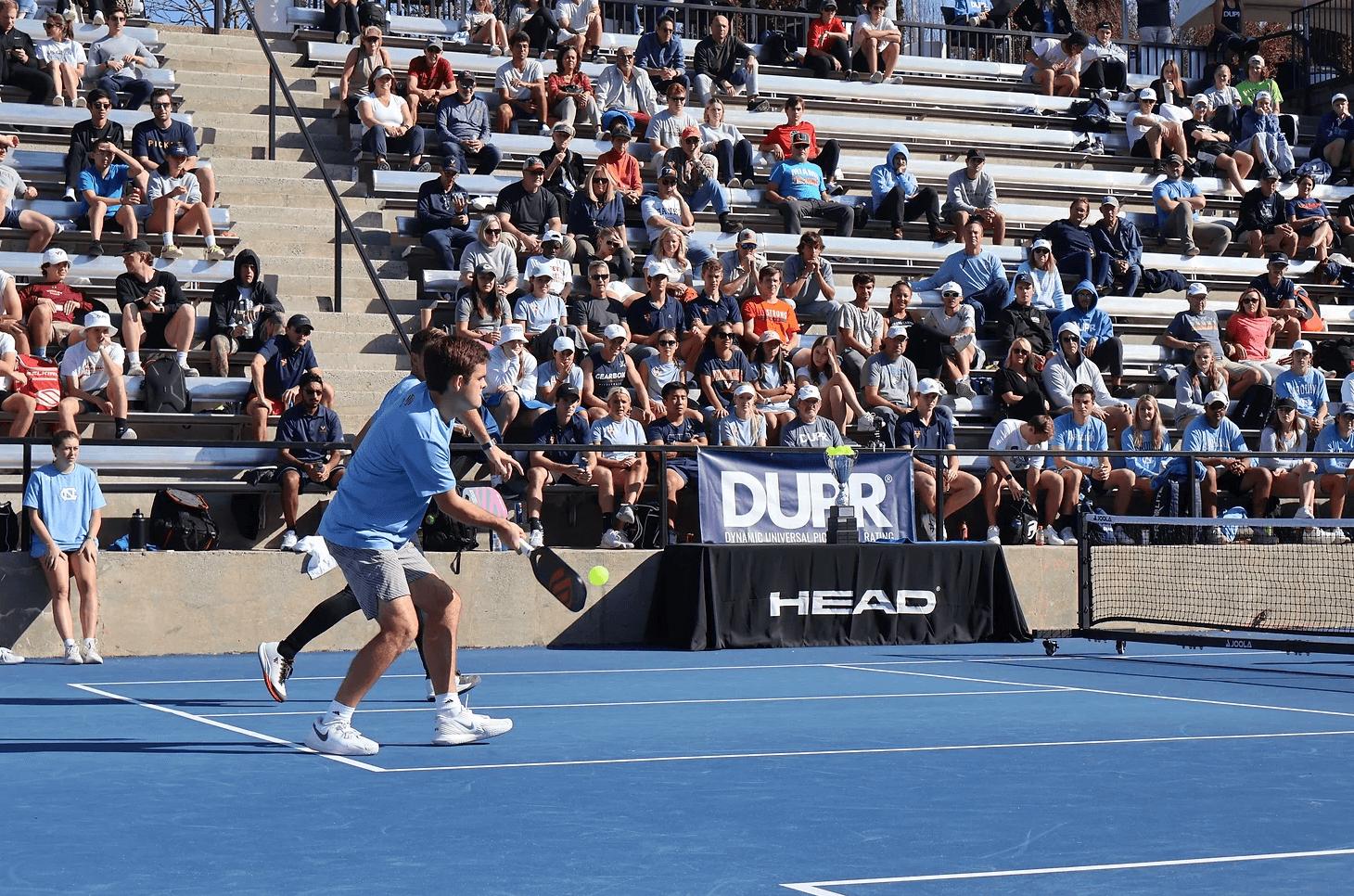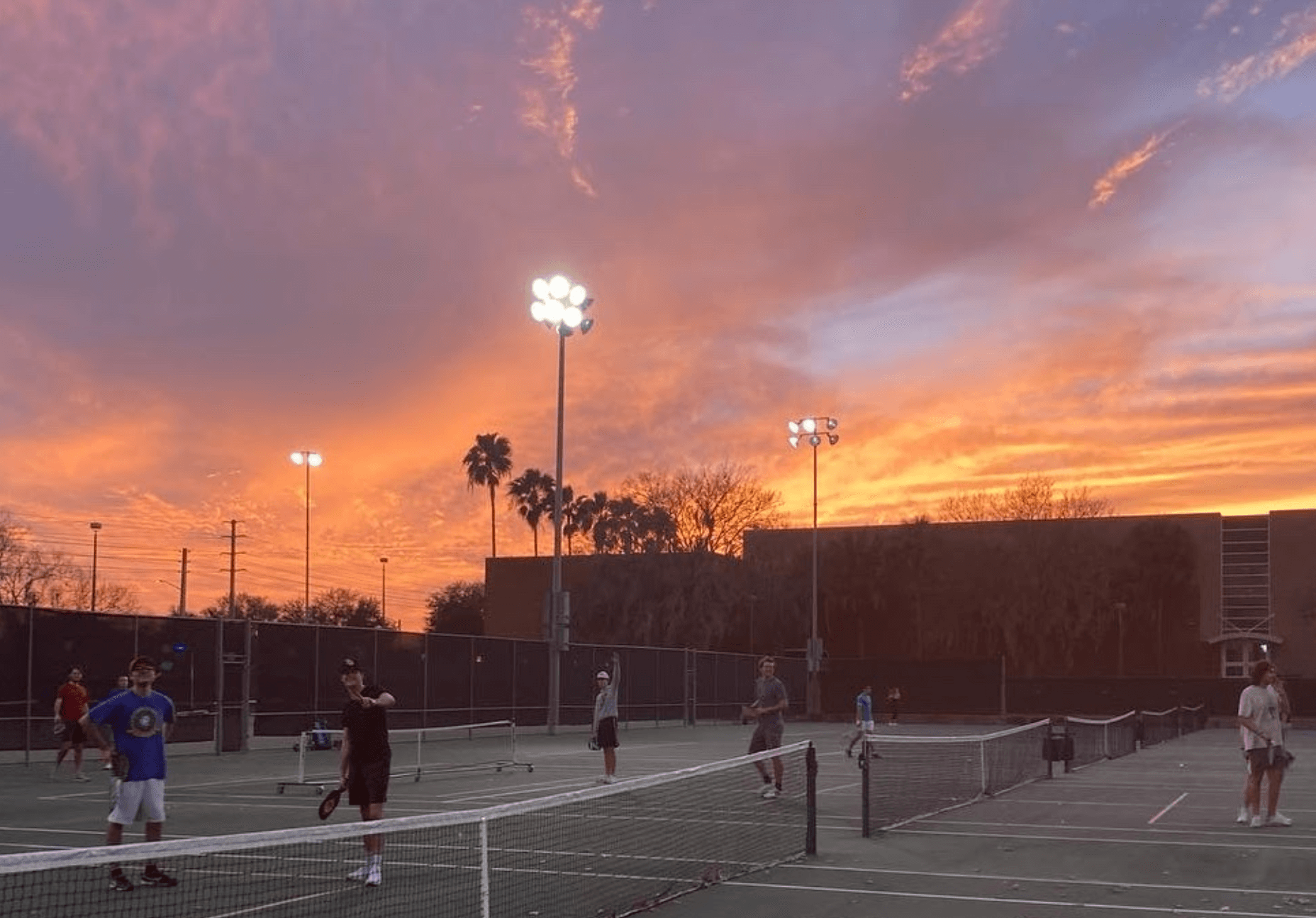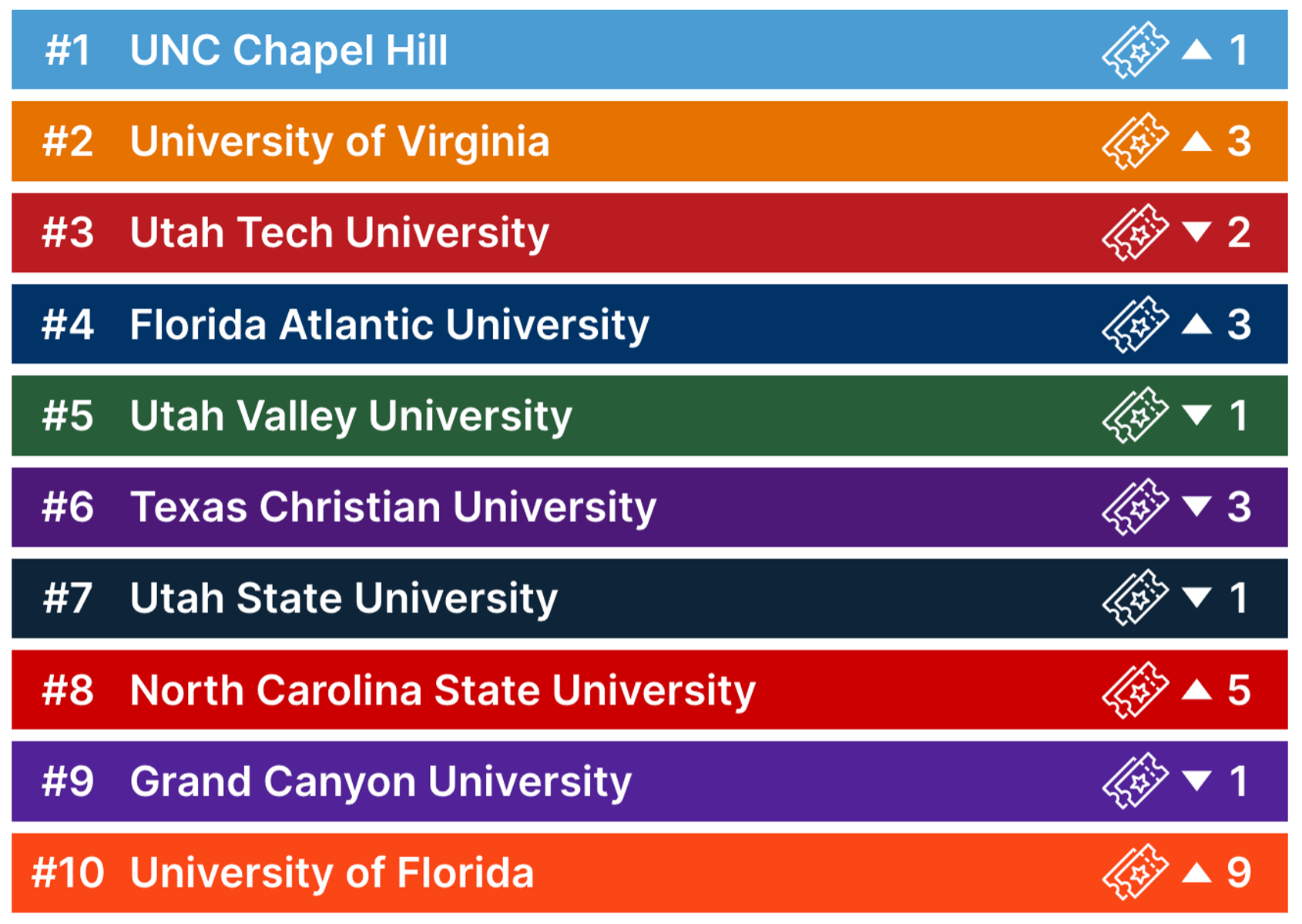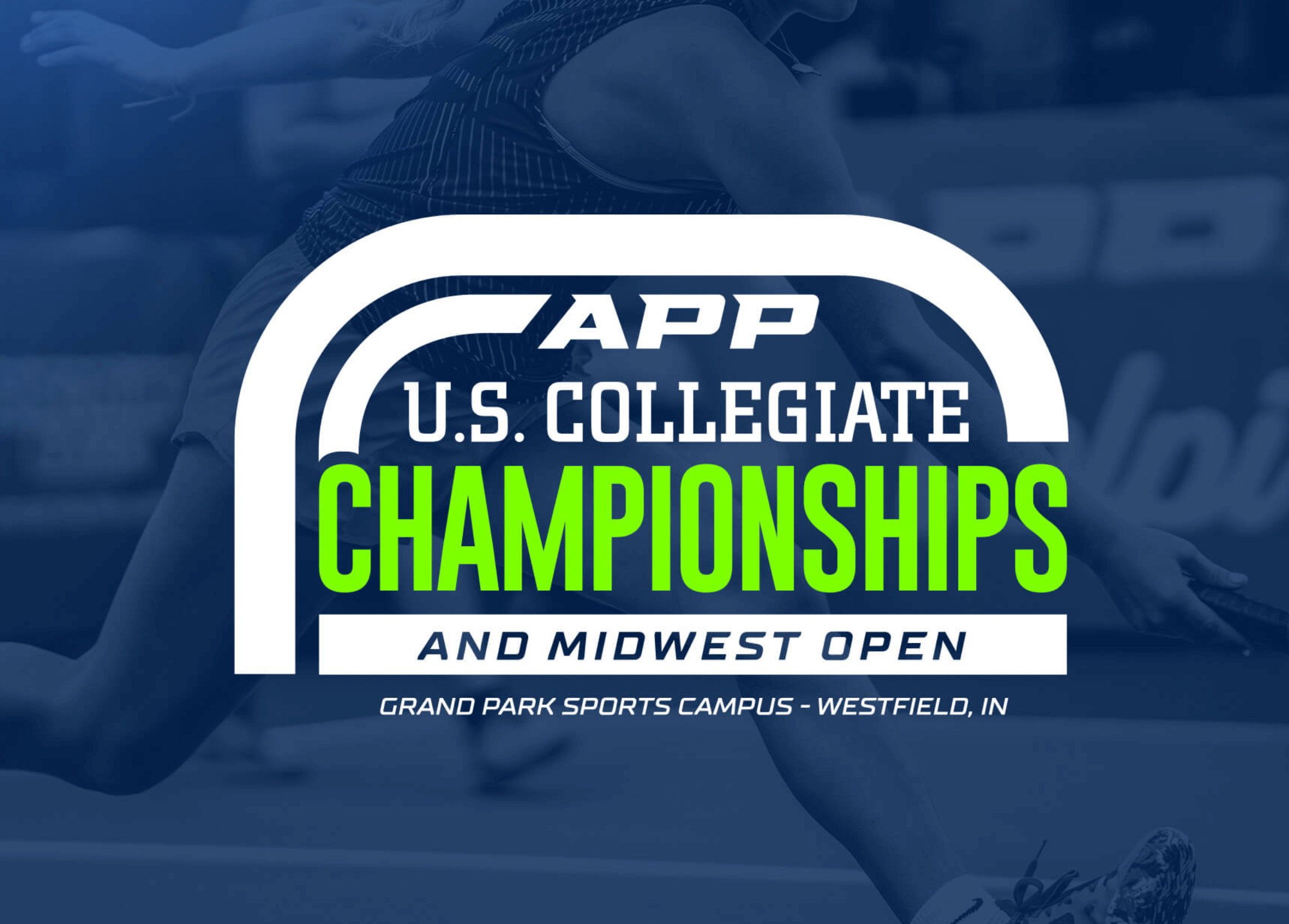Governing College Pickleball: Here’s The 101
As Pickleball Takes Off on Campuses Nationwide, These Orgs are Shaping the Future of the Sport
As pickleball explodes in popularity across the country, the sport is gaining a foothold on college campuses, driven by an astonishing student commitment establishing pickleball as a competitive sport. As part of this five-part series, theTUNDRA explores the state of collegiate pickleball within each region of the U.S., starting with today’s primer focusing on its organization as a club sport.

About Collegiate Pickleball
Pickleball isn’t an NCAA sport (yet), but that doesn’t mean that there aren’t college pickleball teams. At this writing, according to USA Pickleball, the sport’s sanctioning body, it’s estimated 79 schools have club pickleball squads. While these clubs primarily play pickleball amongst themselves, many compete against other schools as well, inching their way toward NCAA status.

Collegiate Club Sports Defined
As opposed to NCAA sports, which are overseen by a school’s athletic department, club sports are student-operated, raising funds independently for their clubs and communities, organizing their own schedules, hosting clinics and generating sport awareness among other grass roots activities. Aside from Springfield, MO’s Drury University, the only college in the country with a school-sponsored pickleball team, collegiate pickleball squads are all student-run clubs.
Club sports are often considered as a second-tier of collegiate competitive sports. For example, a school might have an NCAA volleyball team filled with scholarship players who complete an intense practice and travel schedules, while the school’s students who enjoy volleyball might organize a club team to play the sport they love without needing to be Division I athletes or take on the time commitment of playing an NCAA sport.
However, for sports not offered by the NCAA, club sports often serve as the top tier of collegiate competition. Ultimate frisbee, for example, isn’t an NCAA sport, but has a vast, well-organized network of club teams across the country. College pickleball falls into this camp.
Additionally complicating collegiate pickleball is that pickleball is the rare sport that can be played as an individual or as a team. If a club is big enough, it can hold an entire season’s worth of matches and tournaments among its own members. At the same time, the club can form a small squad of its most committed players and travel across the country to play other teams. College pickleball clubs often serve both of these functions at the same time; they organize opportunities for casual players to play while also representing their schools at tournaments across the country.
How Collegiate Pickleball is Governed?
Several organizations have thrown their hat into the ring in the race to be the primary collegiate pickleball governing body.
DUPR

Until pickleball is sanctioned by the NCAA, a few organizations pitched-in to fill the void in governing the sport. Most notably, ratings system DUPR has emerged as the main player, hosting 14 tournaments across the country in 2023.
The DUPR season kicked off in mid-March with the Georgia Regional in Peachtree Corners, GA – right outside of Atlanta, the hub of the sport in the South. The final tournament of the circuit was the Nevada Regional in early October, culminating with the DUPR Collegiate National Championships in Peachtree Corners in November. The University of Virginia won the event, taking home a $32,000 prize. DUPR also held a Collegiate Individual National Championship in April, providing top players the opportunity to showcase their talents regardless of team.
In 2024, DUPR’s collegiate circuit is expanding. The organization will partner with schools to host 16 on-campus regional tournaments, along with its eight super-regional tournaments. The winner of each regional, as well as the top four teams at each super-regional, will earn a ticket to DUPR’s expanded 48-team National Championships in late November.
DUPR also maintains a published ranking of the best college pickleball teams.

DUPR PUBLISHES COLLEGIATE PICKLEBALL TEAM RANKINGS PHOTO CRED: DUPR
The NCPA
The most recent entry is the National Collegiate Pickleball Association. Aiming to govern and promote collegiate pickleball, the NCPA hosts four regional tournaments in addition to its national championships – the organization expects over 50 colleges to compete for the $25,000 prize pool.
The NCPA season kicked off in November with its California Alumni Fundraiser just outside of San Diego, CA. A month later it took over College Station, TX for its Texas Alumni Fundraiser. The next two NCPA events – the Alabama and Florida Alumni Fundraisers, are planned for 2024, but the organization hasn’t announced dates yet. Each tournament has a $5,000 prize pool. As opposed to DUPR, the NCPA awards medals to individuals, not teams.
The NCPA began in San Diego early in 2023, first organizing competitions between local schools. Because its events were such a hit, the NCPA grew to the point that 50 schools have since competed in its events. NCPA has already attained a HUGE viral moment, making it onto the NCAA’s radar for a potential naming infringement; the NCAA recently requested that the upstart organization change its name due to possible copyright issue, owing to the ‘substantial similarity’ between their respective names.

Other Notable Organizations
U.S. Collegiate Pickleball operates on a smaller scale, supporting students starting clubs at the collegiate level, promoting the sport on campus, and scheduling matches against other colleges. The organization promotes a unique model for college pickleball that encourages faculty and alumni participation.
USA Pickleball also helps govern the collegiate game. In addition to providing resources to clubs across the country, such as a guide on how to start a pickleball club on campus, USAP sponsors 13 school clubs as official members. Member clubs have access to USAP’s official pickleball software providers, and USAP’s liability insurance policy.
The APP is also jumping on the collegiate bandwagon. The tour recently hosted its first-ever U.S. Collegiate Championships this month in Westfield, IN. Top collegiate teams from across the country competed for the $50,000 prize pool, with Utah Tech University coming out on top. After the success of the APP's first collegiate tournament, look for the organization to add more collegiate stops on its tour.

THE APP TOUR LAUNCHED THEIR FIRST COLLEGIATE CHAMPIONSHIPS PHOTO CRED: APP
Collegiate Pickleball: What to Expect Next
With the commitment, drive and ambition of college students driving the sport’s popularity, cementing the sport across younger generations who will shortly be in leadership positions to grow the sport in meaningful ways across the total addressable market, one thing is certain:
Expect the unexpected. Pickleball is no longer your parents’ sport.

